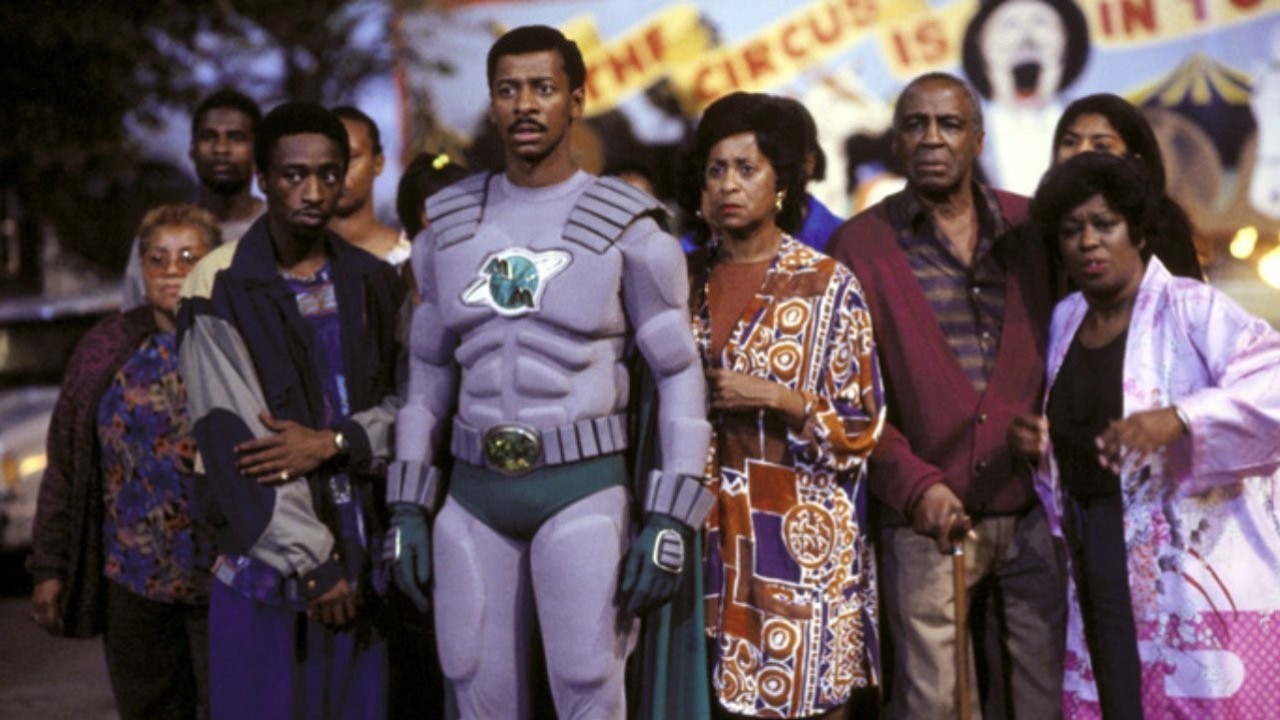Well, 12 Years a Slave is upon us. It’ll feel about that long while folks chatter about it effusively until Oscar season. And, like The Help before it, it’ll probably win some awards. Which begs the question:
So what?
Yes, it’ll be nice to see a couple of black directors, like Steve McQueen and Lee Daniels, nominated at the same time. Even if they don’t want you to talk about them being black too much. Strange, how in the age of Obama, being black has become passe to black Hollywood, isn’t it?
For example, Anika Rose (Dream Girls, For Colored Girls) said that she doesn’t know what a black movie is. That’s peculiar since she’s been in several of them.
Zoe Saldana said she has no business complaining about racism since we have a black President. Tell that to Trayvon Martin’s family, Ms. Saldana. Oh, by the way, dear Saldana, Nina Simone spoke to me in a dream and she’s rolling in her grave.
Not to be outdone, Lee Daniels said on BreakingBrown.com September 24, 2013 that he doesn’t want to talk about racism in fear of losing out on jobs.
Wow.
If you take his black welfare comments and add it to this surprisingly frank admission then he’s just like Harry Belafonte and Paul Robeson in one glorious package, ain’t he?
I guess when they say gay is the new black they’re not talking about Mr. Daniels. Or sadly, maybe they are. In fact, it almost seems that the act of even mentioning blackness in Hollywood, especially if you’re black, is in some sort of bizarre bad taste.
At least we’ll always have The Hollywood Shuffle by Robert Townsend. All these years later, it’s still funny because it’s true. It’s still satire because it stings.
The mostly familiar tale of The Hollywood Shuffle remains legendary both for the story on the screen and behind the camera. Robert Townsend, a frustrated black actor in real life, maxes out his credit cards to finance a movie about a frustrated black actor who is weary of having to play a subservient racial game to remain employed. He later learns that just being a working black actor isn’t enough without any real power, because, as his grandmother, the late great Helen Martin says, “There’s work at the post office.”
One of the best scenes was all about a black acting academy where African-Americans needed to learn practical lessons if they wanted to make a living.
If you want to work then you’d damn well better learn how to play a slave in black acting school. In a delicious irony, the best student of the school who plays a slave so effectively is also a Brit like Chiwetel Ejiofor.
Admittedly, Ejiofor’s character isn’t a buffoon like the Stepin Fetchit riff Townsend sends up. He was a free American man who was kidnapped and forced into brutal enslavement. He’s very noble, of course. Hell. Aren’t they all? But he’s there to serve.
The Help. Django Unchained. The Butler. 12 Years a Slave. All of these movies came to light during the time in history when a black person became the most powerful man in the world even though he doesn’t like to call too much attention to that either. See a pattern?
During The Great Depression of the 1930s, films about affluence were all the rage in the face of overwhelming poverty. People didn’t always want to be reminded of the struggle they were living while being entertained. The high life on the screen was a reaction to their deprived reality. So, which reality are these new tortured black folk films a reaction to?
If Ejiofor wins an Oscar for playing a slave then good for him. But don’t call it a Renaissance call it a repeat. Because Denzel already did that very nobly, of course, and there was Hattie McDaniel before him. The true black creative Renaissance is happening online. On film, Fruitvale Station and almost anything by Ava Duvernay deserves that label. Nollywood springs to mind.
But when it comes to the trend of slave movies, even though Jamie Foxx was the eponymous character in Django Unchained, his character wasn’t important enough for Will Smith which is why he passed on it. The talented Mr. Foxx wasn’t even nominated for any major awards. That honor went to his supporting actor, the white guy, Mr. Christoph Waltz, for playing the Hollywood beloved emancipator.
Such criticisms always bring out hypersensitive reactions from black Hollywood like, “Why do all you haters have to complain when there are no jobs for black creators and then turn around and complain when there are?” Or some such drivel. Viola Davis actually told Tavis Smiley that he was part of the problem when he asked tough questions about The Help. That didn’t make any sense then and it doesn’t make any sense now.
However, the answer to the question is simple. The full potential of the black cinematic experience isn’t being consistently contained by the Hollywood machine. So, as consumers, we’re gonna keep bitching about it until it’s done right because it’s our money and we feel like it. Or we can take our business elsewhere which seems the only viable option at this point.
And can we please stop calling everybody who can see that the Emperor Has No Film a hater? The 1990s called and they want their insults back. Everybody with an opinion contrary to the fan base is neither a hater nor a “do nothing Negro.”
In mythology, the role of the prophet is either respected or reviled by the populace dependent upon their willingness to receive the truth. The prophet character, throughout various cultures, is telling people a truth they need to hear. Or else, he’s testifying about something they just don’t feel like dealing with even though the warnings have far reaching ramifications.
Folks can talk about how noble and different this big screen Struggle Porn is all they want to. But it’s now several decades later and we’re having the same conversations that the old school Struggle Porn like Amistad and Glory provoked. So, no, it’s not new. No, it’s not different. It’s just the same stuff on a different day. It’s just Black Acting School.
And that’s why Robert Townsend is a prophet.











Robert Townsend is a sage, a soothsayer, a prophet. We should have
listened to him.
Black film needs a new direction – a renaissance like you say. Hollywood is taken
by people who do not have a history of sharing – only hoarding. That, my
friends, is simply why America continues to stagnate, fall behind and continues to treat Black people like second class citizens.
I am glad you finally figured it out. LMAO!
Robert Townsend and the likes should have built Black Acting Schools, real ones that actually produced black actors/actresses who would at least change the status quo. Merely criticizing Hollywood, though is in its proper place, does nothing to change the course of black film, black film careers or how we would choose to present ourselves in film. It’s time for black industry executives to begin to pull resources together to establish an industry that caters to us.
LOL, let some white men start a black industry, where black actors and actresses are being employed en mass, and black films churned out in monstrous proportions each year, and it’s making money like Nollywood and co., then, I bet you, people like Spike Lee, Will Smith and his lady Jaden and that intelligent Jada, and co. will come out and cry foul about how white people are exploiting the black moving going audiences.
The thing simply is that black executives don’t seem to believe in the black movie market, or are unwilling to come together to do it, or incapable of coming together to do it. In its sad conclusion, its just a shame, a complete shame, that the black people with the money are the most unintelligent, most heartless, and the most white-ass-kissing m’fckers we could ever fathom. Just a big fat shame!
No easy answers. Whites, Jews are in control of Hollywood, and the Swastika films of Nazi hatred will continue for ever… if black people want space to make their own narratives then, get your own industry. Hollywood is not it for black films. I am sorry. That’s just how it is. Get your own, which part of that don’t we get??